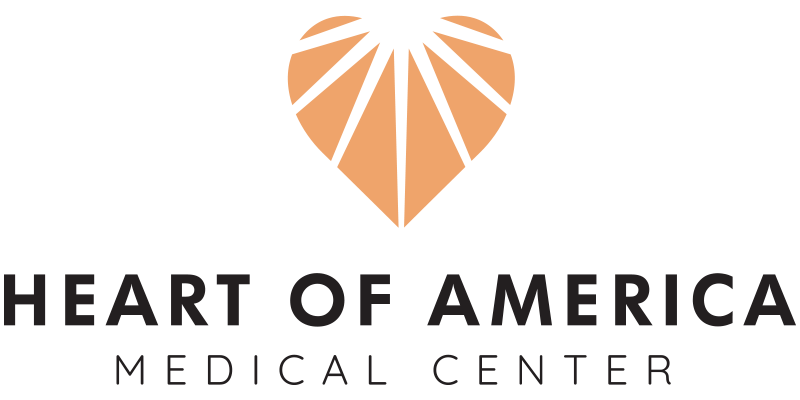Moving Into Basic Care
Decision Making
Part of aging gracefully is knowing when a lifestyle change will enhance your quality of life. It's not easy making that decision. Families often find it difficult to discern the needs of their loved ones, and then discuss with them the lifestyle changes required to meet those needs.
On this page, you'll find advice on how to assess loved ones' needs and how to discuss needed lifestyle changes. If you know your loved one is having problems, waste no time in taking action. As difficult as the process might be, by being proactive you are providing for your loved one's health, happiness, and safety.
We're here to help you and your family explore your options and to make these life-changing transitions as easy as possible. Please feel free to contact us at any time.
How to Access Needs
Family members often mistakenly attribute things like forgetfulness, poor housekeeping, or a messy physical appearance to "old age."
Using your senses - sight, sound, smell, taste, touch - and the checklist below, you can check for signs your loved one may need additional care or assistance. Part of aging gracefully is knowing when a lifestyle change will enhance your quality of life. It's not easy making that decision. Families often find it difficult to discern the needs of their loved ones, and then discuss with them the lifestyle changes required to meet those needs.
On this page, you'll find advice on how to assess loved ones' needs and how to discuss needed lifestyle changes. If you know your loved one is having problems, waste no time in taking action. As difficult as the process might be, by being proactive you are providing for your loved one's health, happiness, and safety.
We're here to help you and your family explore your options and to make these life-changing transitions as easy as possible. Please feel free to contact us at any time.
-
Sight
Changes in appearance or housekeeping can be a sign seniors are being limited physically or mentally from completing normal daily tasks.
- Do they get out of their nightclothes during the day?
- Are they wearing clothes with food stains?
- Is their hair completely combed?
- Are they normally clean-shaven, but not now?
- Do their teeth appear clean?
- Does she continue to wear makeup?
- How do their shoes look?
- Is the house orderly and clean?
-
Sound
Listening to what seniors say and how they speak tells you about their mental status.
-
Smell
 Button
ButtonYour nose will tell you if your family member is bathing properly, keeping his or her home clean, and eating regularly.
- Does your loved one smell clean?
- Does their living environment possess any unpleasant odors?
- Does the refrigerator or the cupboards smell bad?
- Is there an unusual amount of mail, garbage, clutter, dust, or dirt?
-
Touch
 Button
ButtonA hug can tell you if your family member is fragile or losing weight, which could mean they are malnourished or at great risk of injury.
- Touch their skin. Is it soft and supple, and is the color normal?
- Do they have unusual tearing or bruising of the skin?
- Do they appear healthy?
-
Taste
 Button
ButtonTasting seniors' food and sorting through their medications will help you determine if they are eating healthy or taking outdated or wrong medications.
- Do they have freshly stocked pantry items? Check expiration dates.
- How does their food taste?
- Does the person appear to move around the kitchen safely?
- Are there many different prescriptions? Have any medications expired?
- Do they know what medications they are taking?
- Do they take their medications at the proper times?
- Do the medications come from different doctors or pharmacies?
Dealing with Change
Changes can be one of the most difficult experiences for humans, and the older we are typically the more difficult change can be. Here are some tips for helping the patient and the family work through these changes.
- Always keep your loved one's best interests in mind. Listen to his or her feelings, needs, wishes, and desires. Allow loved ones to make as many decisions as possible to give them a greater sense of control. Realize you cannot force people to do what they don't want to do.
- Talk with family. Before you talk to your parent or loved one, talk to other members of your family to make sure you agree on the issues at hand and reach a consensus on how best to address those issues.
- Find out what's available. Tour facilities and gather information on services. Share your findings with family members.
- Decide how and when to talk with your loved one. Keep in mind this is not one talk but will involve many conversations over weeks or perhaps months. Some families find it beneficial to rehearse important conversations before having them with their loved ones.
- Treat your loved one with respect. Acknowledge the sadness that comes from loss and the fear caused by change. At the same time, help your loved one understand the peace of mind it will bring you knowing they are living in a safe situation.
- Enlist the help of a third party. Recruit a doctor, pastor, or close friend, to talk with your loved one about how a lifestyle change will improve their health and safety.
- Assure your loved one that you'll always be there for them. Fill new living quarters with personal belongings, photos, and other items that are meaningful and important.
- Accentuate the positive. Many seniors' lives change for the better when they enter living situations that meet their social, emotional, physical, and spiritual needs.
-
Basic Care Suites
Most people choose to live in private suites. Occasionally a new resident will move into a semi-private suite until a private suite becomes available. Married couples often choose to share a suite.
Each suite is furnished with a bed, writing desk, glider rocker, and a dresser. Residents are welcome to use their furnishings or a combination of their furnishings and those provided by Haaland Estates. All furnishings brought into Haaland Estates must be clean and in good condition.
Some suites are equipped with full-bath facilities, including a sink, toilet, and shower. Half-bath suites have private sinks and toilets.
-
Preparing to Move
You are welcome to use furnishings provided by the facility or bring your own. Residents are encouraged to decorate their suites with meaningful items like family photographs, favorite chairs, or bedspreads. Some residents bring dorm-sized fridges to store snacks or favorite beverages. Family members are responsible for the care and cleaning of any items brought from home. Power strips are allowed; extension cords are not.
-
Clothing
Your packing list should include at least six changes of clothing, including undergarments, pajamas, robes, and seasonal garments like winter jackets and gloves. Label all clothing using a permanent marker; the front office has a special marker for dark clothing. We are not equipped to care for clothing that requires special care or is dry-clean only. There is minimal storage space for out-of-season or extra clothing.
-
Money and Valuables
We advise residents not to bring valuables such as expensive watches or rings to basic care and that residents keep no more than $30 in cash in their rooms. Residents may open a Resident Fund Account, from which they can deposit or withdraw money during regular office hours. These funds can be used for outings, perms, gifts, etc.
-
Telephone and Internet
Private phones and Internet service may be installed in basic care suites. Residents or their families are responsible for ordering these services. All charges are billed directly to residents or their families. Haaland Estates provides phones in each wing for incoming calls and a private room where residents can make outgoing and long-distance calls.
-
Estimated Budget
 Button
ButtonSuite rates - Basic care suite rates vary based on whether you have a private suite and whether the suite has a full or half-bath.
Medical expenses - Residents or their families are responsible for medical expenses including routine exams, outpatient treatments, medications, emergency care or hospitalization, out-of-town medical appointment, and transportation costs.
Other expenses - Other expenses might include private telephone fees, spending money for perms, hair coloring, outings, gifts, snacks, personal hygiene items, and clothing.
-
Paying for Basic Care
Personal resources - Typically, basic care residents or their families use personal resources to pay expenses at Haaland Estates. Medicare does not pay for basic care services or the cost of living in a basic care facility.
Nursing home insurance - If you have nursing home insurance, we will be happy to go over your policy with you and file appropriate claims.
Veterans' benefits - Veterans and surviving spouses may be eligible for Aid and Attendance Pension benefits. A good source of information on claiming these benefits can be found at VeteranAid.org. For more information, you may call the VA National Pension Call Center toll-free at 1-877-294-6380.
Medicaid - A state-funded program, Medicaid provides qualified individuals with financial assistance for basic care. To find out if you or your loved one qualifies for North Dakota's Basic Care Assistance Program, contact the North Dakota Department of Human Services.
https://www.veteranaid.org
https://www.nd.gov/dhs/services/financialhelp/basiccare.html



